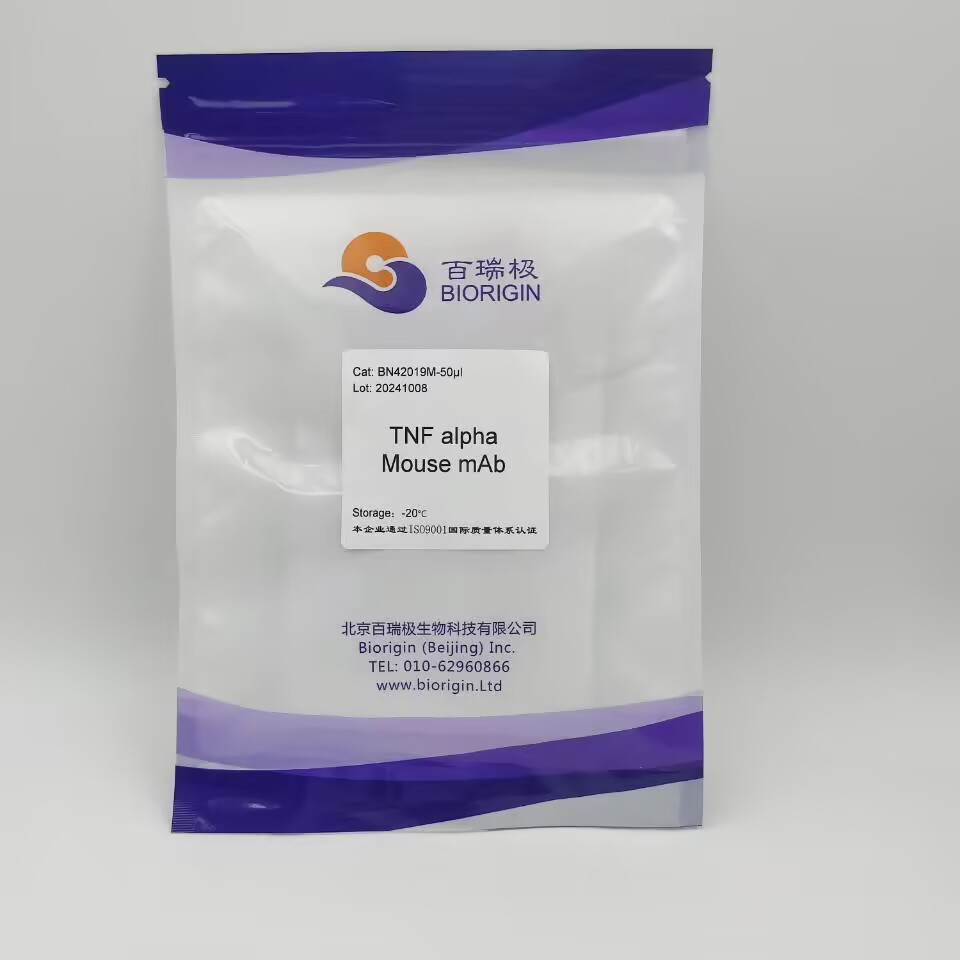
货号
产品规格
售价
备注
BN42019M-50ul
50ul
¥1486.00
交叉反应:Rat(predicted:Mouse,Chicken,Dog,Pig,Cow,Rabbit,Sheep,GuineaPig,Monkey,Insect, Yeast) 推荐应用:WB,IHC-P,IHC-F,ICC,IF,ELISA
BN42019M-100ul
100ul
¥2360.00
交叉反应:Rat(predicted:Mouse,Chicken,Dog,Pig,Cow,Rabbit,Sheep,GuineaPig,Monkey,Insect, Yeast) 推荐应用:WB,IHC-P,IHC-F,ICC,IF,ELISA
Catalog Number: BN42019M
Target Protein: TNF alpha
Concentration: 1mg/ml
Form: Size : 50ul/100ul
Liquid Size : 200ug (PBS only)
Lyophilized Note: Centrifuge tubes before opening. Reconstitute the lyophilized product in distilled water. Optimal concentration should be determined by the end user.
Host: Mouse
Clonality: Monoclonal
Clone No.: 3A4
Isotype: IgG1
Applications: WB (1:1000-2000), IHC-P (1:100-500), IHC-F (1:200-500), ICC/IF (1:100-500), IF (1:200-500), ELISA (1:5000-10000)
Reactivity: Rat (predicted:Mouse,Rabbit,Pig,Sheep,Cow,Chicken,Dog,GuineaPig,Monkey)
Predicted MW: 17/26 kDa
Entrez Gene: 7124
Swiss Prot: P01375
Purification: affinity purified by Protein G
Storage: Size : 50ul/100ul
0.01M TBS (pH7.4) with 1% BSA, 0.02% Proclin300 and 50% Glycerol.
Size : 200ug (PBS only) 0.01M PBS Shipped at 4℃.
Store at -20℃ for one year. Avoid repeated freeze/thaw cycles.
Background: This gene encodes a multifunctional proinflammatory cytokine that belongs to the tumor necrosis factor (TNF) superfamily. This cytokine is mainly secreted by macrophages. It can bind to, and thus functions through its receptors TNFRSF1A/TNFR1 and TNFRSF1B/TNFBR. This cytokine is involved in the regulation of a wide spectrum of biological processes including cell proliferation, differentiation, apoptosis, lipid metabolism, and coagulation. This cytokine has been implicated in a variety of diseases, including autoimmune diseases, insulin resistance, psoriasis, rheumatoid arthritis ankylosing spondylitis, tuberculosis, autosomal dominant polycystic kidney disease, and cancer. Mutations in this gene affectsusceptibility to cerebral malaria, septic shock, and Alzheimer disease. Knockout studies in mice also suggested the neuroprotective function of this cytokine